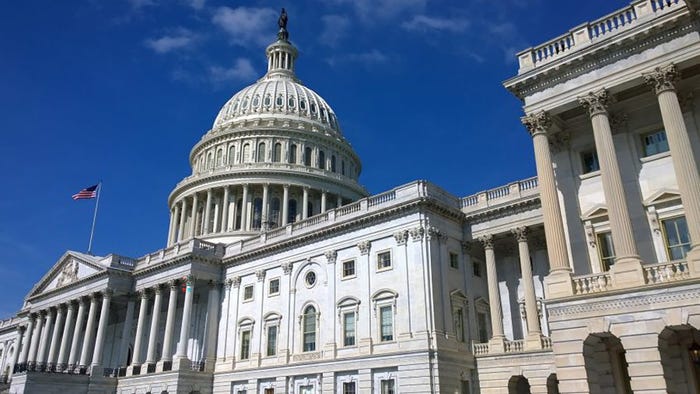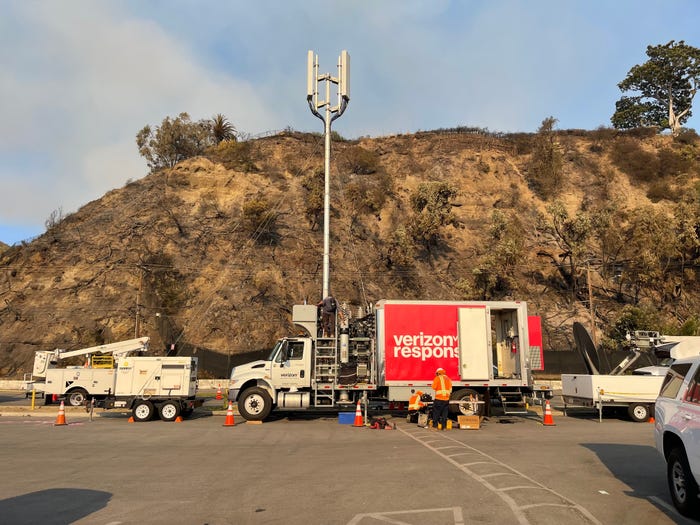UK Court of Appeal rules against Motorola Solutions, solidifies price controls on Airwave TETRA systemUK Court of Appeal rules against Motorola Solutions, solidifies price controls on Airwave TETRA system
United Kingdom (UK) Court of Appeal thwarted Motorola Solutions’ attempt to reverse UK-government price controls on the company’s Airwave TETRA network, resulting in the LMR giant likely losing more than $1 billion in projected revenue this decade for providing UK public safety with mission-critical communications.

United Kingdom (UK) Court of Appeal thwarted Motorola Solutions’ attempt to reverse UK-government price controls on the company’s Airwave TETRA network, resulting in the LMR giant likely losing more than $1 billion in projected revenue this decade for providing UK public safety with mission-critical communications.
Lord Justice Nicholas Green wrote the unanimous opinion that denied Motorola Solutions ability to further appeal a decision by the Competition and Markets Authority (CMA) that Motorola Solutions must reduce its Airwave service charges by “almost £200 million [$245.6 million under current exchange rates] per year,” according to a CMA press release on the matter.
Released last Thursday, this ruling brings to a close a dispute between Motorola Solutions and the UK Home Office about the amount of money the UK government must pay Motorola Solutions for extended Airwave TETRA service used by UK first responders until the LTE-based Emergency Services Network (ESN) replaces it. The much-delayed ESN was supposed to be operational by the end of 2019, but UK officials now believe it will not be ready for use until at least 2029 and that Airwave must remain operational until then.
Under the CMA decision, the UK government effectively received a significant price reduction in the Home Office’s signed four-year contract extension for Airwave services through 2026, as well as the three-year period from 2027 through 2029.
George Lusty, Executive Director of Consumer Protection and Markets, at the CMA, applauded the UK Court of Appeal decision, which echoed the ruling of the Competition Appeal Tribunal (CAT) last year.
“The CMA’s investigations and legal decisions are carefully considered and evidence-led, and we welcome today’s decision by the Court of Appeal, which endorses our reasoning in this case,” Lusty said in a prepared statement.
“Our investigation showed that Motorola had been charging emergency services in the UK £200 million a year more than they would if the market was working well. The Court’s judgment today means that our price cap remains in place, which limits how much Motorola can charge emergency services for using its Airwave Network.
“Today’s decision brings this matter to a close.”
Motorola Solutions disagreed with the Court of Appeal ruling, providing the following statement to Urgent Communications.
“Airwave serves UK communities and its emergency services with essential, mission-critical communications that are relied upon for safety and security every day,” according to Motorola Solutions. “Land-mobile-radio networks like Airwave remain the communications technology of choice for public-safety agencies around the world.
“While we continue to strongly disagree with the CMA’s unprecedented decision, we are focused on moving forward and continuing to deliver this world-class emergency communications service for the UK’s public-safety users.”
CMA opened its investigation into Airwave-network pricing in October 2021 amid “concerns that the market might not be working well,” despite the fact that the UK government—through the Home Office—established Airwave as a monopoly in the UK public-safety-communications market with the establishment of the TETRA system two decades ago. Motorola Solutions purchased Airwave in late 2015—virtually the same time the company won the Home Office contract to develop ESN user services, including a push-to-talk solution.
CMA’s investigation determined that Motorola Solutions was earning “supernormal” profits from Airwave Solution, which CMA said contributed about “21% of Motorola Solutions global pre-tax profits while accounting for only around 7% of its global revenues,” according to the opinion written by Lord Justice Green.
With this in mind, the CMA decided to create price controls that capped the amount of money Motorola Solutions could charge for Airwave TETRA services in the UK. This pricing regime effectively reduced the projected revenue for Airwave by more than 40%, including for the four years that the Home Office contracted Motorola Solutions to extend the life of Airwave beginning in 2023—a deal that the Home Office negotiated while having “very weak bargaining power,” according to the CMA.
Green’s opinion acknowledges that the “consequences of the [CMA] decision for Motorola were severe,” noting that the LMR vendor was required to provide all contracted Airwave services despite the project loss of more than $1 billion in expected revenue under the price controls.
“This thwarted the legitimate expectation of Motorola, when it acquired the Airwave network in 2016 in a transaction approved by the CMA, that it would be able to invest in the service to ensure its safe operation for as long as it was required in return for being able to charge the contractually agreed prices,” Green’s opinion states. “The Home Office challenges this characterization of the case. Nonetheless, in my view there is no doubt but that the case does raise some issues of broader public importance.”
But Green ultimately decided to oppose allowing Motorola Solutions to appeal the CMA decision further
“There is no proper basis upon which this Court can interfere,” according to Green. “For all these reasons I would refuse permission to appeal.”
Both of the other UK Court of Appeal justices hearing the case echoed Green’s opinion.





